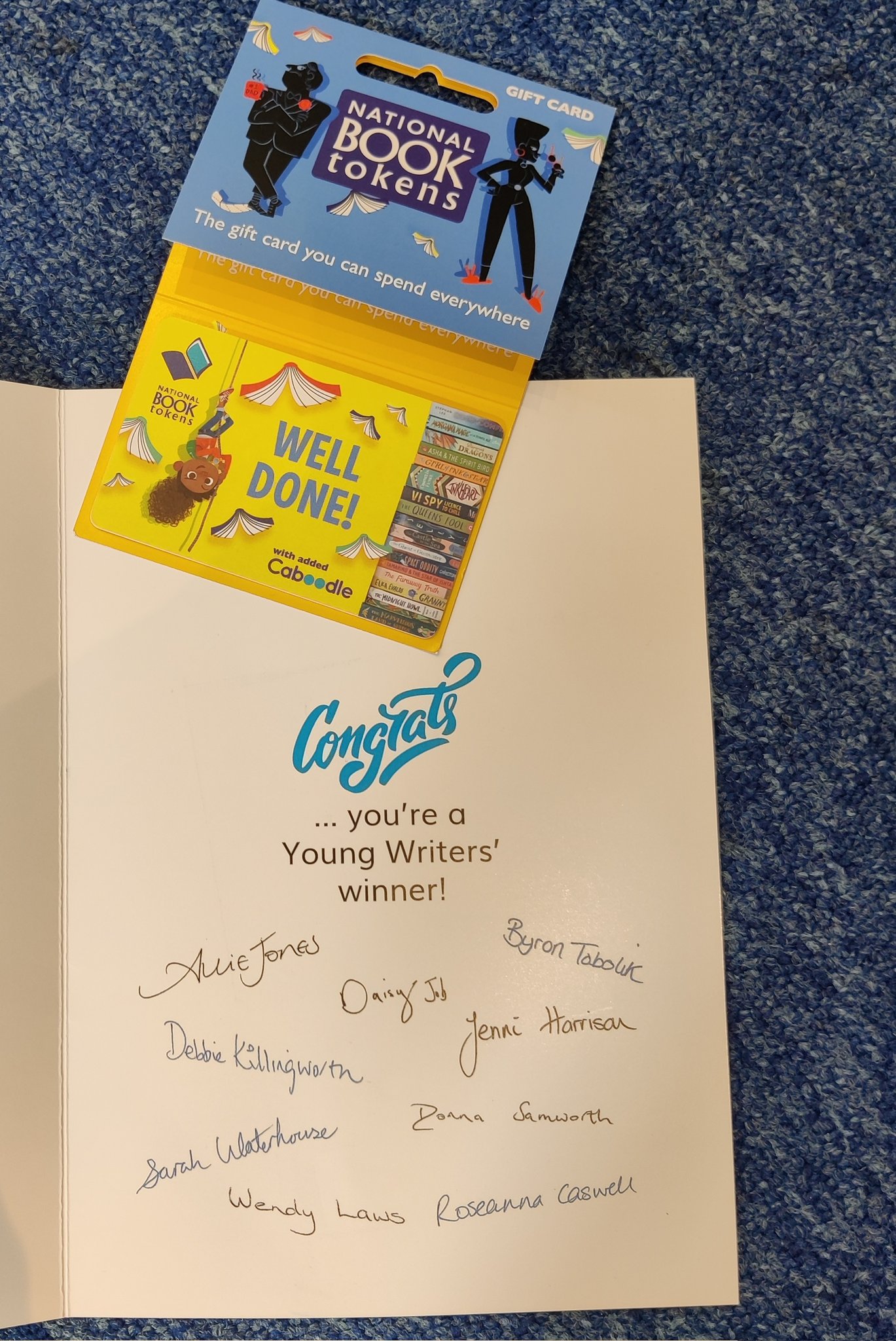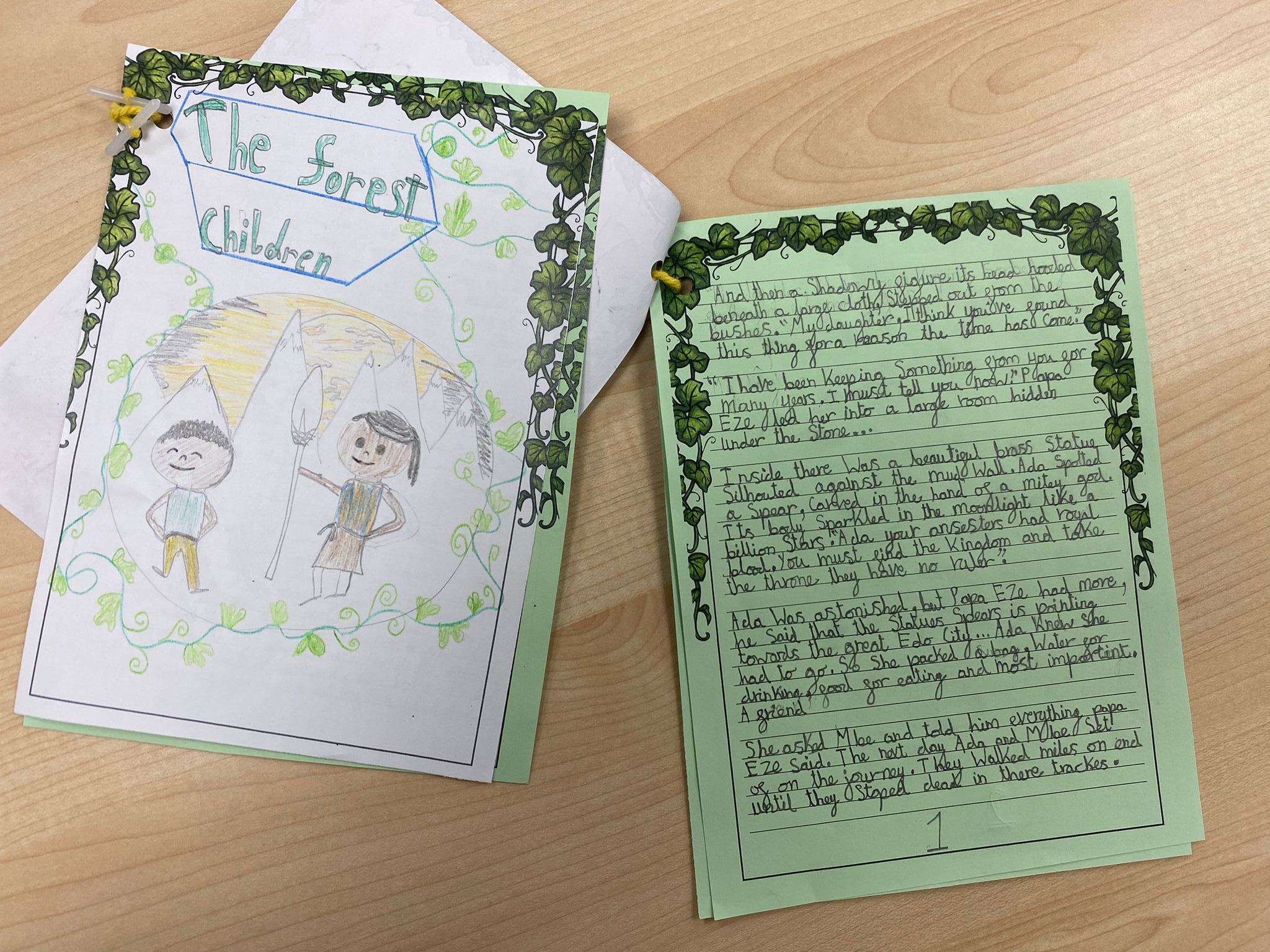Writing
Children at Abacus are THRIVE because they are authors, poets, writers, reporters, composers, editors! They incorporate their ability to write fluently with imagination, vocabulary, writer's techniques and transcription to create stories and non-fiction pieces of writing. They use phonics knowledge and skills as a stepping-stone to read fluently and accurately, discuss books in depth and share a love of a rich and varied range of texts!
"In English, we can express ourselves and use our imagination to write stories." - Year 4 pupil.
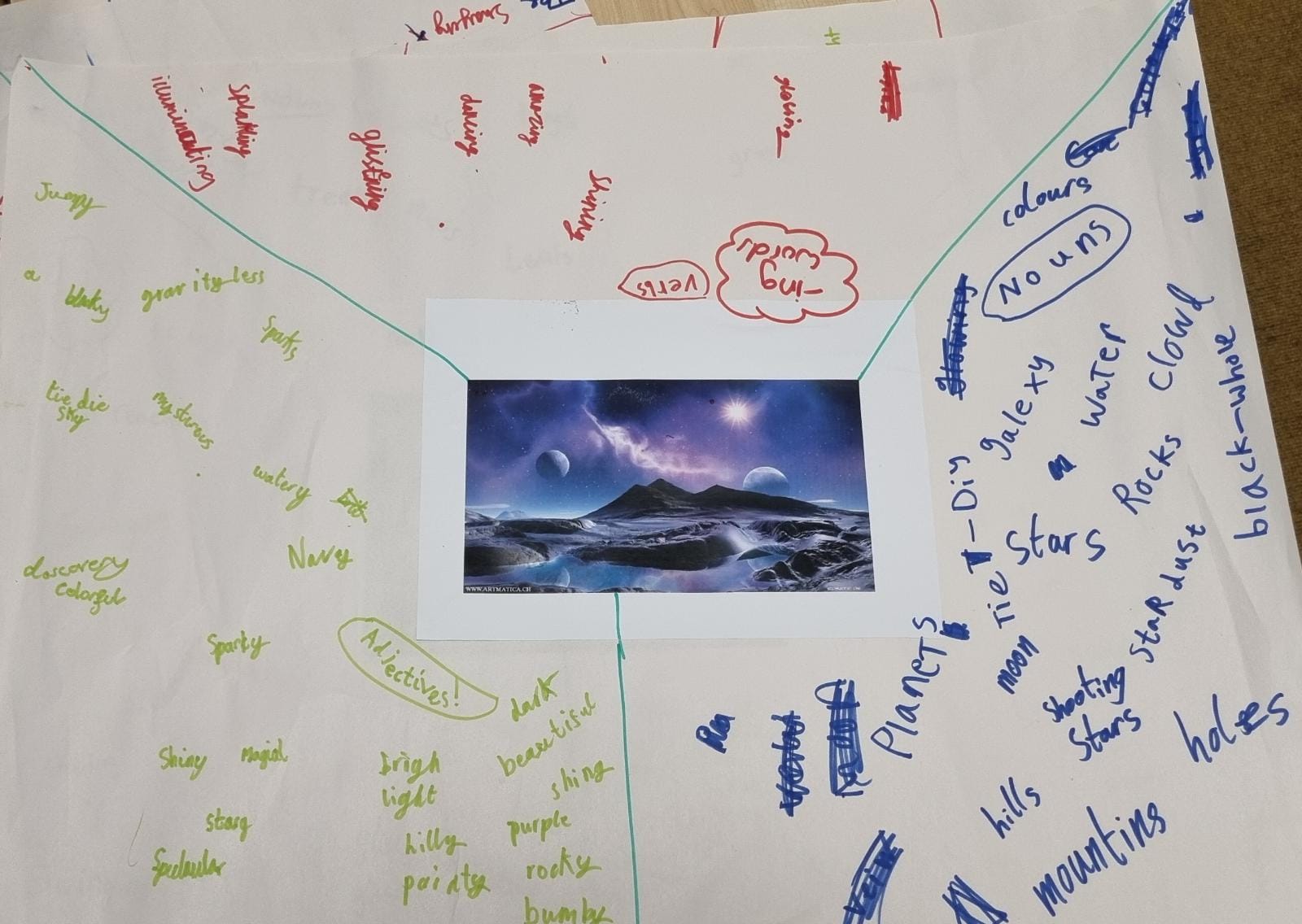
Gathering ideas for writing setting descriptions We are authors and competition winners!
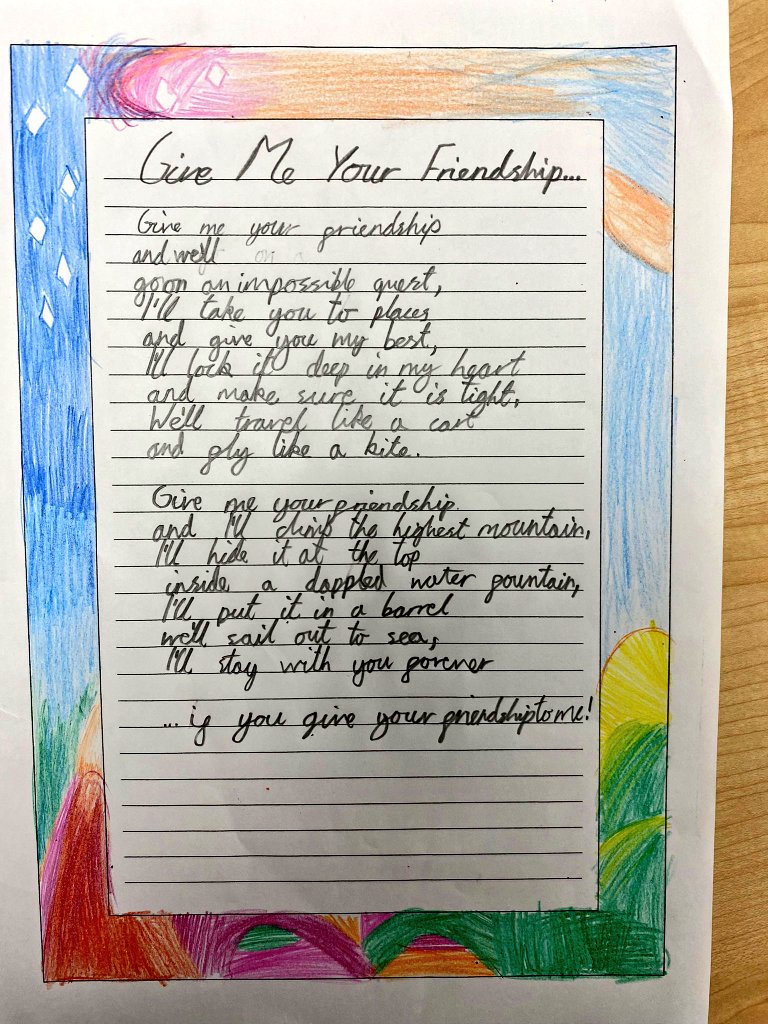
Poetry writing Story writing
Intent
“Literature should jolt the senses, making us feel alive. In school, we only have time to read books that bite and sting… if the books that we read do not wake us with a blow to the head, what’s the point in reading? A book must be the axe, which smashes the frozen sea within us. Literature in the classroom should have that extra bite – to surprise, challenge, delight and create wonder as well as the inexplicable charm of rhythmic and memorable language. We should read, explore and perform…”
Pie Corbett
Reading and Writing at Abacus Belsize Primary School
Children at Abacus are authors, poets, writers, reporters, composers, editors! Reading and writing are a crucial part of our curriculum at Abacus and underpins all that we do. By the end of Year Six we intend our children to have developed a love of writing and to be able to express their thoughts and ideas clearly and creatively. We are dedicated to enabling our pupils to become lifelong readers and we believe reading is key for academic success.
/950085E2266878C00602A8D7AA0060ED.jpg) We intend to create writers who can re-read, edit and improve their own writing, and enable pupils to be able to confidently use the essential skills of grammar, punctuation and spelling. Writers are readers who ‘magpie’ words, phrases and ideas from their class texts and independent reading materials. We set high expectations for all our children to take pride in their work alongside allowing their imaginations to flourish.
We intend to create writers who can re-read, edit and improve their own writing, and enable pupils to be able to confidently use the essential skills of grammar, punctuation and spelling. Writers are readers who ‘magpie’ words, phrases and ideas from their class texts and independent reading materials. We set high expectations for all our children to take pride in their work alongside allowing their imaginations to flourish.
Pupils will make excellent progress from their own personal starting points. By the end of Year Six they will be able to write clearly and accurately and adapt their language and style in and for a range of contexts, purposes and audiences. Our pupils will acquire a wide vocabulary and have a strong command of the written word. Most importantly, they will develop a love of writing and be well-equipped for the rest of their education. Children will freely express themselves through writing in English and other curriculum areas and will look forward to extended writing sessions where their put their skills to work.
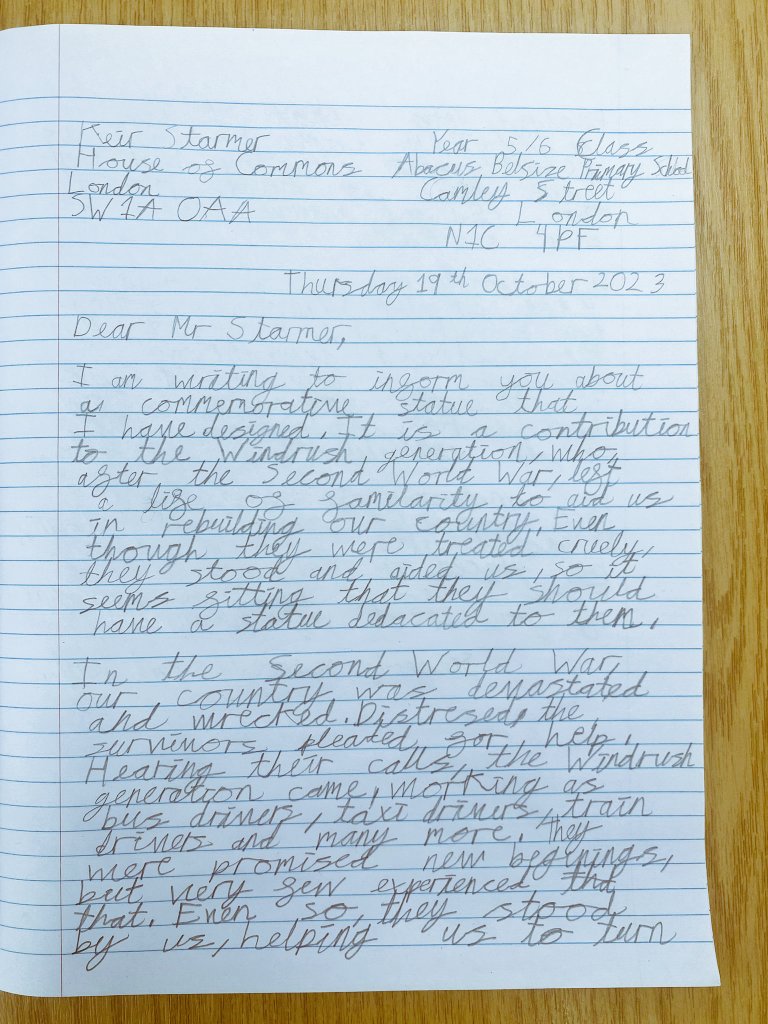
Implementation
Here at Abacus, we learn to write using the Literacy Tree programme.
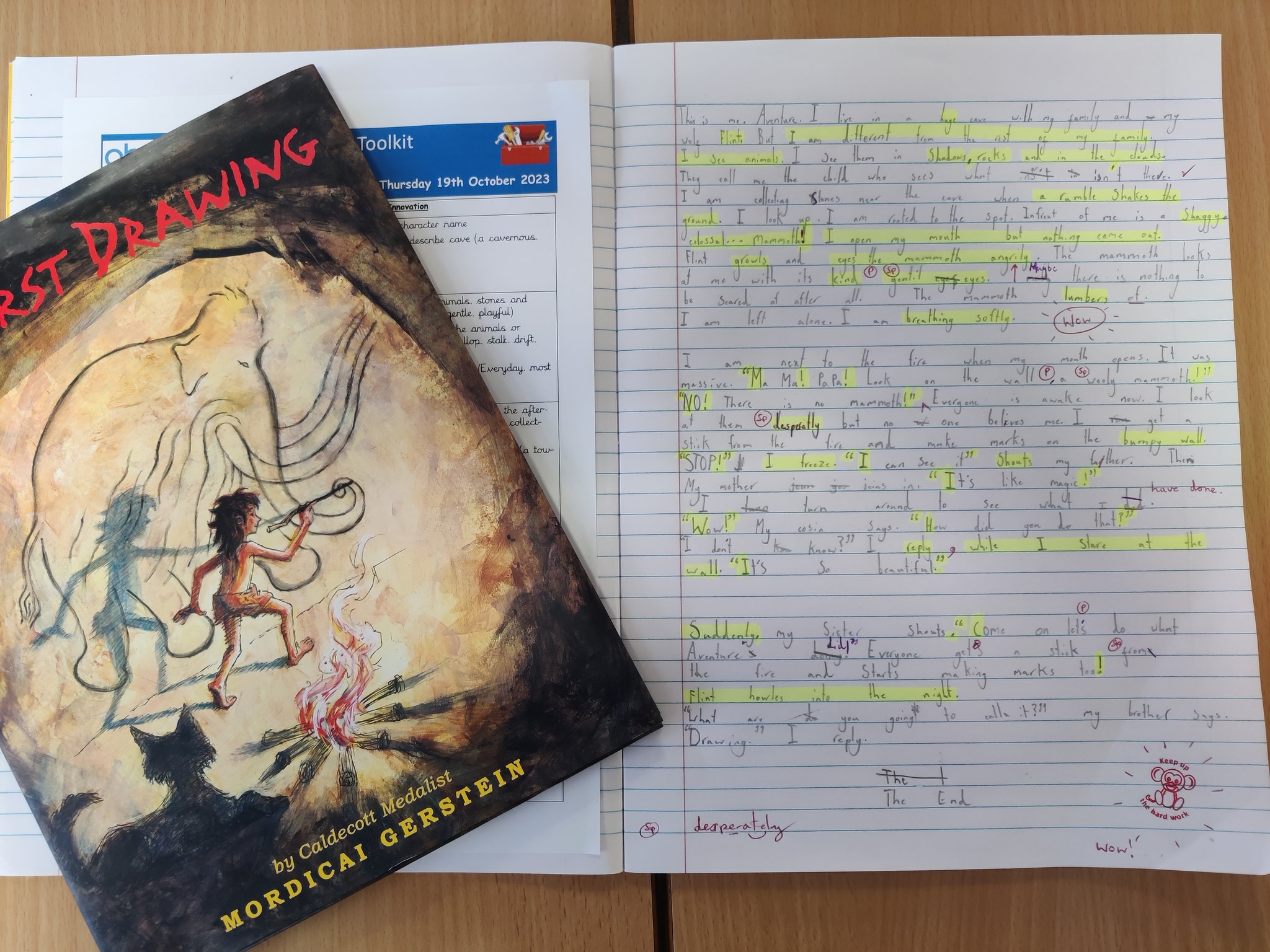
Children are exposed to a wide range of texts and genres and explore the phrases, vocabulary and styles needed to create these pieces. In KS1 children write a variety of narrative stories and begin to explore more non-fiction texts as they move to KS2.
/8003D16850A7FE018B155BF172397F30.jpg) Using the literacy tree programme as a starting point, teachers use a variety of quality first teaching sequences to prepare children for writing including, story mapping, short-bust creative sessions and toolkit planning. To ensure challenge and a learning sequence that is directed specifically to learners at Abacus, teachers talk part in half-termly planning sessions where a 'challenge partner' helps teachers to develop a targeted sequence of learning.
Using the literacy tree programme as a starting point, teachers use a variety of quality first teaching sequences to prepare children for writing including, story mapping, short-bust creative sessions and toolkit planning. To ensure challenge and a learning sequence that is directed specifically to learners at Abacus, teachers talk part in half-termly planning sessions where a 'challenge partner' helps teachers to develop a targeted sequence of learning.
Children at Abacus love writing and often send their writing off to real members of our community- including the Royal family and Prime Minister!
For more information about Literacy Tree- please click on the following link: https://literacytree.com/about-us/
Impact
/85C1C4DFD1BCD8C848E495137246A269.jpg)
Assessment
Teachers use lesson times to give immediate and 'live feedback' to children, intervening in their learning as it is taking place- which has the most impact! Teachers use simple marking codes to support children with their use of punctuation and support their editing skills.
All children from years 1-6 have an 'extended writing book' where longer outcomes are recorded. These are special books for the children where they can show-off and celebrate their sequence of learning. These are marked in-depth for children and an editing session follows each extended writing session, ensuring children are able to address mistakes and move their learning along.
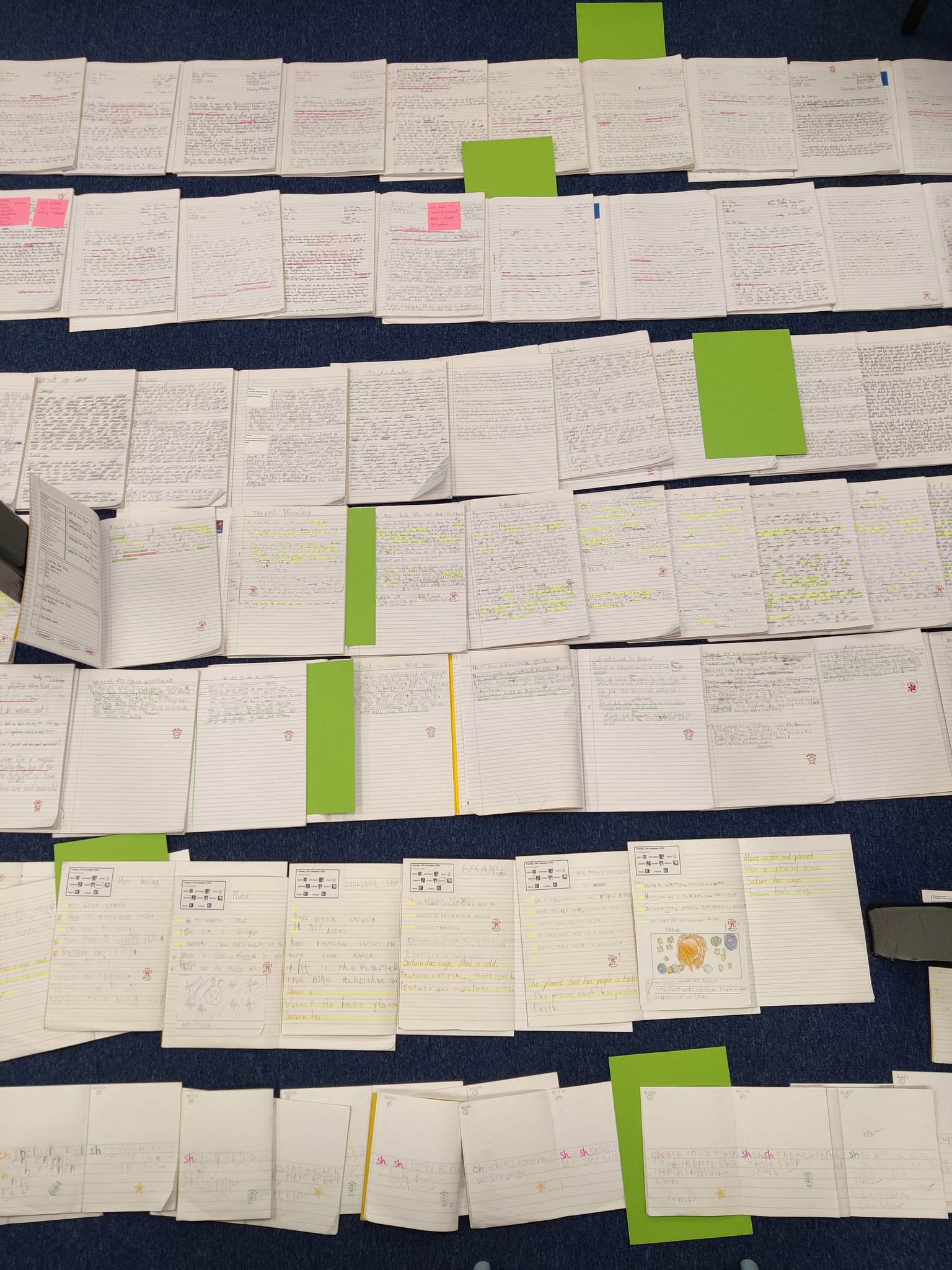
THRIVE-ing in Writing
"Our story maps help us in writing lessons." - Year 1 pupil.
"If we don’t know a spelling, our teachers help us find a way, rather than just being told how to spell it." - Year 3 pupil.
"In English, we can express ourselves and use our imagination to write stories." - Year 4 pupil.
"Our writing toolkits really help us with what to include in different types of writing." - Year 4 pupil.
"Our teachers help us in English by giving us feedback on our writing, so we can improve." - Year 5 pupil.









